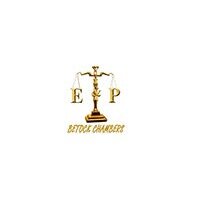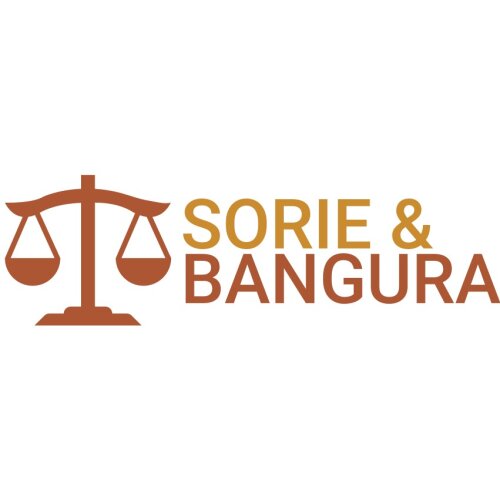Best Renewable & Alternative Energy Lawyers in Freetown
Share your needs with us, get contacted by law firms.
Free. Takes 2 min.
List of the best lawyers in Freetown, Sierra Leone
About Renewable & Alternative Energy Law in Freetown, Sierra Leone
Freetown, the capital of Sierra Leone, is experiencing rapid urban growth and increasing energy demands. Renewable and alternative energy law in this context involves the legal frameworks that support the development, implementation, and regulation of energy sources such as solar, wind, hydro, and biomass. These laws aim to encourage investment in sustainable energy, minimize environmental impact, and secure energy access for all. Given Sierra Leone's vast potential for renewables and the government's emphasis on reducing reliance on fossil fuels, legal structures in Freetown are gradually evolving to facilitate cleaner energy solutions for businesses and households.
Why You May Need a Lawyer
Whether you are an investor, business owner, property developer, or resident interested in renewable or alternative energy, there are several reasons why you may require legal assistance. Common situations include navigating complex licensing and permitting processes, ensuring compliance with environmental and energy regulations, drafting and negotiating contracts for energy projects, resolving land use or property disputes, securing funding for renewable projects, handling intellectual property concerns related to clean energy technologies, and addressing disputes with partners or government entities. A knowledgeable lawyer can guide you through these challenges and help ensure your projects are legally compliant and protected.
Local Laws Overview
Sierra Leone's energy sector is governed by several key laws and regulations that affect renewable and alternative energy development, especially in Freetown. The Electricity Act 2011 is a foundational statute that sets standards for electricity supply, distribution, and use, including provisions for renewable projects. The Sierra Leone Environmental Protection Agency Act outlines requirements for Environmental Impact Assessments (EIAs) and ongoing compliance for energy projects. Additionally, regulations regarding land tenure and usage, especially when government or community lands are involved, play a pivotal role. Any renewable energy project in Freetown must comply with national standards as set by the Sierra Leone Energy Commission and the Ministry of Energy, as well as local authority guidelines for urban installations, safety, and environmental protection.
Frequently Asked Questions
What types of renewable and alternative energy are most common in Freetown?
Solar energy is the most widely adopted renewable source in Freetown due to abundant sunlight. Small hydropower and biomass projects also exist but are less common within the city limits.
Do I need a license to install a solar panel system for my home or business?
Licensing requirements depend on the capacity of the system and whether it is used for private purposes or for selling energy. Small-scale installations typically require basic regulatory approval, while larger or commercial projects need formal licenses from the Energy Commission.
What permits are necessary to start a renewable energy project?
Permits generally include an Environmental Impact Assessment, land use approval, construction permits, and, for commercial projects, an energy generation or distribution license from the Sierra Leone Energy Commission.
Can foreign investors participate in renewable energy projects in Freetown?
Yes, foreign investors are encouraged to invest in Sierra Leone's energy sector, including renewables. They must comply with local company registration rules, obtain relevant permits, and adhere to investment guidelines.
Are there government incentives for renewable energy projects?
The government has indicated prioritization of renewable energy through policy and, occasionally, through tax incentives or investment support, primarily for projects addressing rural electrification. It is important to check the latest policies with the Ministry of Energy.
How are disputes in renewable and alternative energy projects resolved?
Disputes may be resolved through negotiation, mediation, arbitration, or litigation, depending on the terms of contracts and the nature of the disagreement. A lawyer can help you determine the best course of resolution.
What environmental regulations apply to renewable energy projects?
All projects must comply with the Sierra Leone Environmental Protection Agency Act, which requires an Environmental Impact Assessment for any development likely to affect the environment.
Can I sell excess power generated by my renewable system back to the grid?
Currently, selling power back to the grid depends on the policies and infrastructure of the national utility provider. Net metering policies may be in development but are not yet widespread.
Who regulates the energy sector in Freetown?
The Sierra Leone Energy Commission is the main regulatory authority overseeing the licensing and regulation of all energy projects within Sierra Leone, including renewable and alternative energy.
How do I ensure my renewable energy project complies with both national and local laws?
Working with a lawyer familiar with Sierra Leone energy, environmental, and land use laws is the best way to ensure all legal requirements are satisfied and to avoid potential legal issues down the line.
Additional Resources
For further assistance, consider reaching out to the Sierra Leone Energy Commission for licensing and policy guidance. The Environmental Protection Agency can provide information on environmental requirements. The Ministry of Energy is also a key authority for policy and investment matters. Local offices of international organizations supporting renewable energy, such as the United Nations Development Programme or the World Bank Group’s energy projects, may offer helpful resources or programs. Additionally, local universities or technical institutes sometimes provide insights and support for renewable energy ventures.
Next Steps
If you are considering a renewable or alternative energy project in Freetown or facing a legal issue in this sector, begin by gathering all relevant documentation, such as project plans, property records, and correspondence with authorities. Identify the specific legal challenge you are facing, whether it involves compliance, licensing, contracts, or a dispute. Seek out a qualified lawyer with experience in renewable energy and Sierra Leonean law. Schedule a consultation to discuss your situation and potential solutions. Staying informed and working with a professional are the best ways to protect your interests and successfully navigate the legal aspects of renewable and alternative energy projects in Freetown.
Lawzana helps you find the best lawyers and law firms in Freetown through a curated and pre-screened list of qualified legal professionals. Our platform offers rankings and detailed profiles of attorneys and law firms, allowing you to compare based on practice areas, including Renewable & Alternative Energy, experience, and client feedback.
Each profile includes a description of the firm's areas of practice, client reviews, team members and partners, year of establishment, spoken languages, office locations, contact information, social media presence, and any published articles or resources. Most firms on our platform speak English and are experienced in both local and international legal matters.
Get a quote from top-rated law firms in Freetown, Sierra Leone — quickly, securely, and without unnecessary hassle.
Disclaimer:
The information provided on this page is for general informational purposes only and does not constitute legal advice. While we strive to ensure the accuracy and relevance of the content, legal information may change over time, and interpretations of the law can vary. You should always consult with a qualified legal professional for advice specific to your situation.
We disclaim all liability for actions taken or not taken based on the content of this page. If you believe any information is incorrect or outdated, please contact us, and we will review and update it where appropriate.












